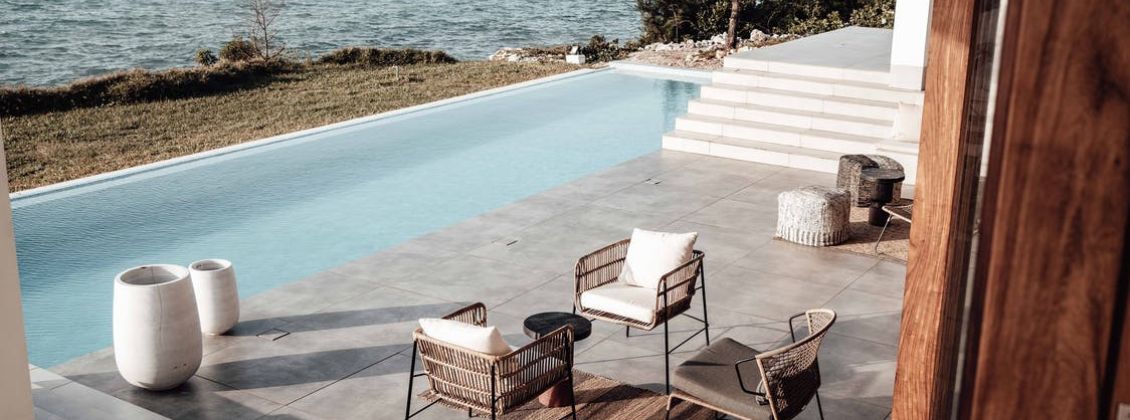Can Fibreglass Pools Be Heated?
If you live in a colder area or an area that has a long winter season, then pool heating is a must for your swimming pool. Once you install a proper heating system, you will be able to go for a dip, even during the cold days. In fact, this is one of the best ways to ensure that you are able to use your pool all year long. Also, a heated pool can be great for your social life as well. Your friends and family members would love to go for a swim in a heated pool. Even during the winter season, you can throw a pool party.

However, can every type of pool be heated? Since fibreglass pools are relatively new to the market, people are unaware of their features and capabilities. Some believe that fibreglass pools cannot be heated. However, the truth is that compared to other types of pools, fibreglass pools are the least expensive and easiest to heat. Pools like concrete and vinyl have almost no ability to retain heat (see our post here on the pros and cons of choosing a fibreglass or concrete pool). You won’t have the same issue with fibreglass pools as fibreglass is an insulator, meaning that it can hold heat. Not only do these types of pools hold onto heat for longer, but also heat up quicker than other types of pools. Because of this, you will be able to save on energy costs. Needless to say, heating your fibreglass pool will cost you a lot less than what you might have had to pay in the case of a vinyl liner or concrete pool.
Now, let’s get into the type of heating that you can get for your fibreglass pool:

Solar heating
When it comes to heating your pool, solar heating has to be among the most popular options. The main reason for this is how affordable it is. Since it involves using natural sun energy for heating the pool, running it is not only good for your finances, but also for the environment. In solar heating, solar collectors are used to collect the natural energy from the sun. Then, the water is passed through tubes at a consistent and steady speed over the collectors. Once the water is heated enough, it is returned to the pool. As it continues to work consistently, it will turn your entire pool.
As mentioned before, solar heating is one of the most affordable options available on the market. This is because it only needs 1 KW of power every hour to run. It works best for areas that get a lot of sunshine. If you live in a place that is not known for its hot, sunny days, you might be better off with a different heating method or using solar heating with some other form of heating.
Solar pool covers are another excellent solution to heating your pool. See here for more information on pool covers.
Electric heating
The electric heating system is another popular option for swimming pool owners. They collect heat from the air, reuse this energy, and use a heat exchanger for heating your pool water. Since it does not completely rely on the sun, it can be more effective than the solar heating system. It can even collect heat when the weather is overcast and during the night. Also, compared to solar heat pumps, an electric pump takes less time for heating up your pool water. However, this also means that they use a lot of energy. It is a less environmentally-friendly option that costs more. It is important to note that electric systems don’t heat your water as much as solar systems. But, if you want a heated pool, even during the cold, winter days, an electric pump would work more effectively.
Gas heating
Gas heating has to be among the most effective ways to heat your pool water, but it is also the most expensive one. The gas heating system runs on propane or natural gas. You have to start by installing a gas heater. Then, the pool water runs through its combustion chamber, where the heat is generated by burning the gas. This heats up your pool water, which flows back into the pool through the tubes. A gas heating system generates a lot of heat and works quickly, making it efficient at its job. It is best suited for heating up a spa, where you need hot water. The best part is that even during the coldest days, this system will do a commendable job.
To use the gas heating system, you will have to install the heater along with tubes for taking water back and forth from the pool. This is an expensive setup. You will also need a gas supply for heating the water. Even though this might seem like a complicated system, it works the best. It can heat your pool water quickly, after which you can switch it off. So, you will be able to achieve the desired results using a lesser quantity of gas. Apart from being expensive, the other issue with gas heaters is that they are very big and might not blend with the aesthetics of your house.

Which heating option is right for you?
Not everyone is interested in taking a cold plunge. Elderly people and young children are not as tolerant of colder water as others. This might be because they are less active and are not particularly interested in or capable of taking vigorous laps for keeping themselves warm in the cold water. Installing a heating system in your pool not only allows you to enjoy a swim during the winter season but also enables you to try out physiotherapy. The warm water can be used for promoting ease of movement, which reduces pain and stress on joints.
When deciding which heating system is right for you, you have to consider your pool’s size. If you have a big pool, you will need an efficient heating system to maintain the temperature of the pool water. Before you install a heating system in your pool, make sure that you consult with a licensed pool builder who can help with the installation. They can also help you make the choice regarding the best heating system, based on your location and requirements. In the case of some heating systems, you might have to install them while installing the pool. So, it is best to discuss your heating needs before you get your pool installed. Check out our post on whether or not plunge pools can be heated!

